-
 Bitcoin
Bitcoin $114400
0.68% -
 Ethereum
Ethereum $3550
2.48% -
 XRP
XRP $3.001
4.99% -
 Tether USDt
Tether USDt $0.9999
0.01% -
 BNB
BNB $757.6
1.46% -
 Solana
Solana $162.9
1.07% -
 USDC
USDC $0.9998
0.00% -
 TRON
TRON $0.3294
0.91% -
 Dogecoin
Dogecoin $0.2015
2.46% -
 Cardano
Cardano $0.7379
2.01% -
 Stellar
Stellar $0.4141
8.83% -
 Hyperliquid
Hyperliquid $37.83
-1.91% -
 Sui
Sui $3.454
0.76% -
 Chainlink
Chainlink $16.62
3.53% -
 Bitcoin Cash
Bitcoin Cash $554.6
2.84% -
 Hedera
Hedera $0.2486
3.91% -
 Ethena USDe
Ethena USDe $1.001
0.00% -
 Avalanche
Avalanche $21.95
3.34% -
 Toncoin
Toncoin $3.563
-2.85% -
 Litecoin
Litecoin $112.7
2.65% -
 UNUS SED LEO
UNUS SED LEO $8.977
0.13% -
 Shiba Inu
Shiba Inu $0.00001232
1.85% -
 Uniswap
Uniswap $9.319
2.93% -
 Polkadot
Polkadot $3.632
1.38% -
 Monero
Monero $307.2
2.36% -
 Dai
Dai $0.9997
-0.03% -
 Bitget Token
Bitget Token $4.340
0.91% -
 Pepe
Pepe $0.00001048
1.07% -
 Cronos
Cronos $0.1348
3.26% -
 Aave
Aave $261.5
1.93%
How do NFT Legal Issues affect the ownership and copyright of NFTs?
NFT ownership is legally ambiguous; owning an NFT doesn't automatically grant copyright to the underlying asset. Legal frameworks are lacking, creating challenges in enforcing rights and resolving disputes globally, highlighting the need for clearer legal guidelines.
Mar 15, 2025 at 03:26 pm
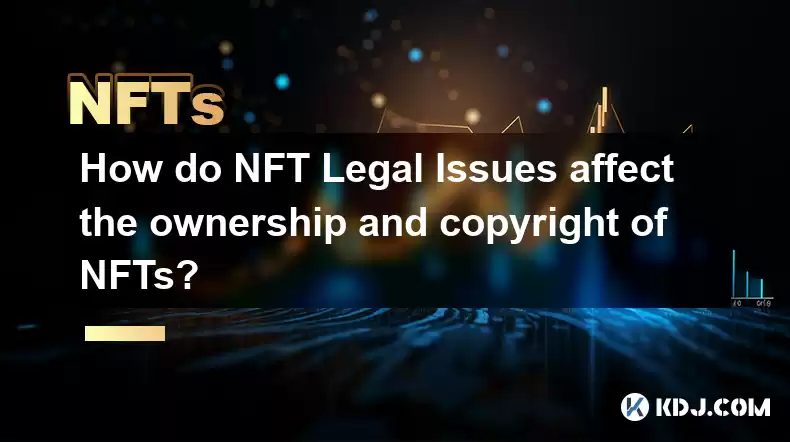
Key Points:
- NFTs, while seemingly offering unique ownership, face complex legal ambiguities regarding true ownership and copyright.
- Existing copyright laws often clash with the decentralized nature of NFTs, leading to uncertainty about infringement and licensing.
- The lack of clear legal frameworks globally creates challenges in enforcing rights and resolving disputes.
- "Ownership" of an NFT may not equate to ownership of the underlying asset's copyright, leading to potential conflicts.
- Smart contracts, while crucial to NFT functionality, lack universally accepted legal interpretations, impacting enforceability.
How do NFT Legal Issues affect the ownership and copyright of NFTs?
The burgeoning world of Non-Fungible Tokens (NFTs) presents a fascinating intersection of technology and law, particularly regarding ownership and copyright. While often marketed as providing unique ownership, the legal landscape surrounding NFTs remains surprisingly murky. This ambiguity creates significant challenges for both creators and buyers.
The core issue lies in the disconnect between the ownership of the NFT itself and the ownership of the underlying intellectual property rights. Simply owning an NFT does not automatically grant you full copyright over the artwork or asset it represents. The creator retains copyright unless explicitly relinquished in the smart contract or through a separate licensing agreement. This fundamental point often leads to misunderstandings and disputes.
Existing copyright laws, designed for a pre-digital era, struggle to adequately address the unique characteristics of NFTs. The decentralized and borderless nature of blockchain technology complicates enforcement of traditional copyright regulations. Determining jurisdiction in international NFT disputes becomes a significant hurdle.
The smart contracts governing NFTs are intended to define ownership and usage rights. However, the legal interpretation of these contracts varies across jurisdictions, leading to uncertainty about their enforceability. A smart contract might clearly outline certain rights, but its legal weight might be challenged in a court of law depending on the location and applicable legislation.
The concept of "ownership" within the NFT context is further complicated. While an NFT proves ownership of a specific token on a blockchain, it doesn't necessarily grant exclusive rights to use, reproduce, or modify the underlying asset. For example, owning an NFT of a digital painting doesn't automatically give you the right to print and sell physical copies of that painting without the artist's permission. This is where licensing agreements become crucial but also complex to negotiate and enforce.
The lack of established legal precedents in the NFT space adds to the complexity. Courts are still grappling with how to interpret and apply existing laws to these novel digital assets. This lack of clarity creates considerable risk for both creators and collectors. The absence of a unified global legal framework further exacerbates the situation, making cross-border transactions and disputes particularly challenging.
Another crucial aspect is the potential for infringement. The ease of copying and distributing digital assets means that even owning an NFT doesn't guarantee protection against unauthorized use of the underlying artwork. While blockchain technology provides a verifiable record of ownership, it doesn't inherently prevent illegal reproduction or distribution.
Furthermore, the metadata associated with an NFT can also become a point of legal contention. Changes or inaccuracies in the metadata could impact the perceived value or ownership rights associated with the NFT. This requires careful consideration during the creation and minting process.
The use of NFTs in the metaverse further complicates matters. The ownership of virtual assets and their legal protection within virtual worlds are still largely undefined, posing additional legal challenges.
The situation is not hopeless, however. The increasing awareness of these legal issues is driving efforts to develop clearer legal frameworks and guidelines. International collaboration and legal harmonization are crucial for building a more stable and predictable legal environment for NFTs.
- What happens if someone infringes on the copyright of an NFT I own?
If someone infringes on the copyright of the underlying asset of your NFT, you can pursue legal action, but success depends on whether you hold the copyright yourself or if the creator retains it. The specifics depend heavily on jurisdiction and evidence of infringement.
- Does owning an NFT automatically give me the right to use the artwork commercially?
No. Owning an NFT typically grants you ownership of that specific token on the blockchain, but it doesn't automatically grant commercial usage rights unless explicitly stated in the smart contract or a separate license agreement.
- How are NFT-related legal disputes handled?
NFT-related disputes are handled through existing legal systems, although the application of law to this novel technology is still evolving. Jurisdiction can be a significant issue, particularly in international disputes. Arbitration might be a more efficient alternative to traditional court proceedings.
- What role do smart contracts play in defining NFT ownership and copyright?
Smart contracts aim to define the terms of ownership and usage rights, but their legal enforceability varies across jurisdictions. Their clarity and enforceability are crucial in determining the strength of ownership claims and the ability to protect against copyright infringement.
- What are the potential legal risks for NFT creators?
Creators face risks related to copyright infringement, licensing issues, contract disputes, and the lack of clear legal frameworks governing NFTs. Clearly defining ownership and usage rights in smart contracts and licensing agreements is crucial for mitigating these risks.
- Are there any international efforts to address the legal ambiguities surrounding NFTs?
Yes, various international organizations and legal bodies are working towards developing clearer guidelines and regulations for NFTs. However, a globally harmonized legal framework is still a work in progress. The complexities of international law and varying legal systems pose significant challenges.
Disclaimer:info@kdj.com
The information provided is not trading advice. kdj.com does not assume any responsibility for any investments made based on the information provided in this article. Cryptocurrencies are highly volatile and it is highly recommended that you invest with caution after thorough research!
If you believe that the content used on this website infringes your copyright, please contact us immediately (info@kdj.com) and we will delete it promptly.
- Cryptocurrency, Altcoins, and Profit Potential: Navigating the Wild West
- 2025-08-04 14:50:11
- Blue Gold & Crypto: Investing Disruption in Precious Metals
- 2025-08-04 14:30:11
- Japan, Metaplanet, and Bitcoin Acquisition: A New Era of Corporate Treasury?
- 2025-08-04 14:30:11
- Coinbase's Buy Rating & Bitcoin's Bold Future: A Canaccord Genuity Perspective
- 2025-08-04 14:50:11
- Coinbase's Buy Rating Maintained by Rosenblatt Securities: A Deep Dive
- 2025-08-04 14:55:11
- Cryptos, Strategic Choices, High Returns: Navigating the Meme Coin Mania
- 2025-08-04 14:55:11
Related knowledge
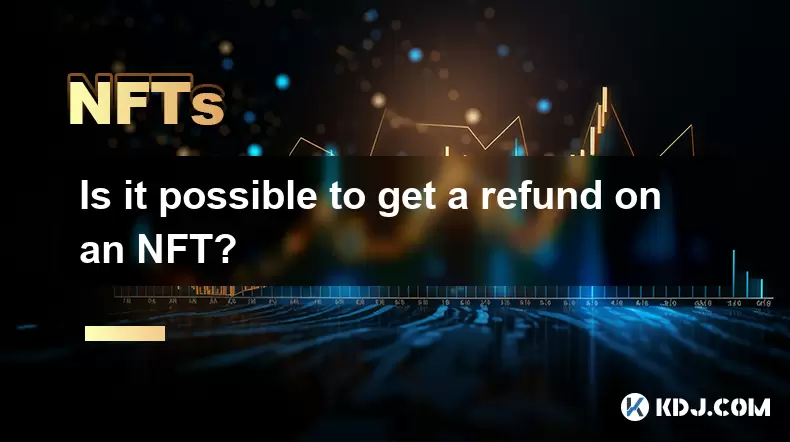
Is it possible to get a refund on an NFT?
Jul 21,2025 at 08:35pm
Understanding NFT Transactions and RefundsWhen you purchase an NFT (Non-Fungible Token), the transaction is typically recorded on a blockchain, making...
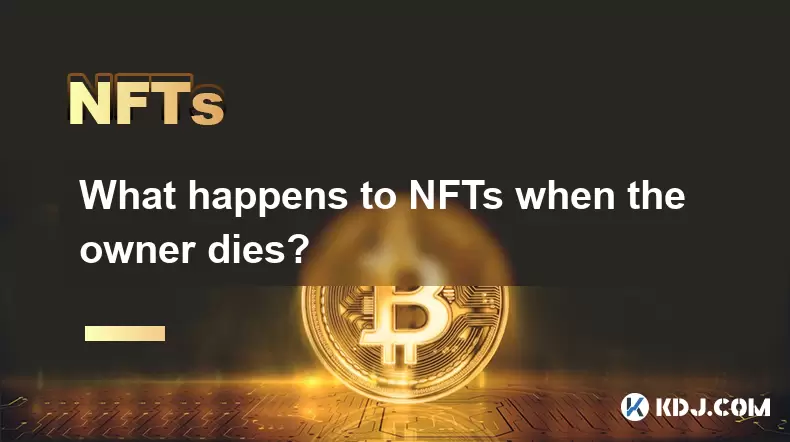
What happens to NFTs when the owner dies?
Jul 22,2025 at 02:43pm
Legal Ownership and Digital AssetsWhen an individual owns NFTs, the question of what happens to these assets upon their death is a pressing one. NFTs ...
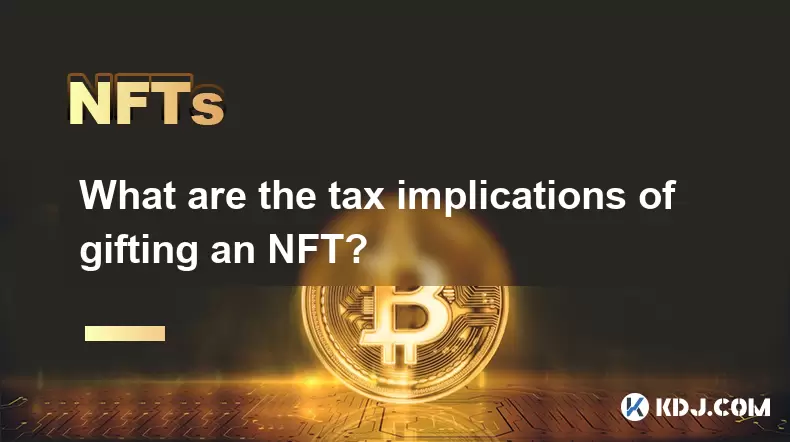
What are the tax implications of gifting an NFT?
Jul 19,2025 at 04:21am
Understanding the Basics of NFT GiftingGifting a Non-Fungible Token (NFT) involves transferring ownership from one individual to another without recei...
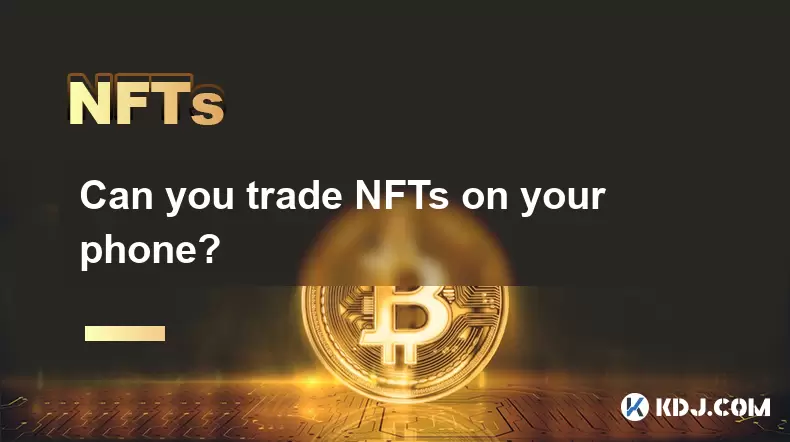
Can you trade NFTs on your phone?
Jul 18,2025 at 04:29am
Trading NFTs on Mobile DevicesYes, you can trade NFTs on your phone, and the process has become increasingly streamlined thanks to a variety of mobile...
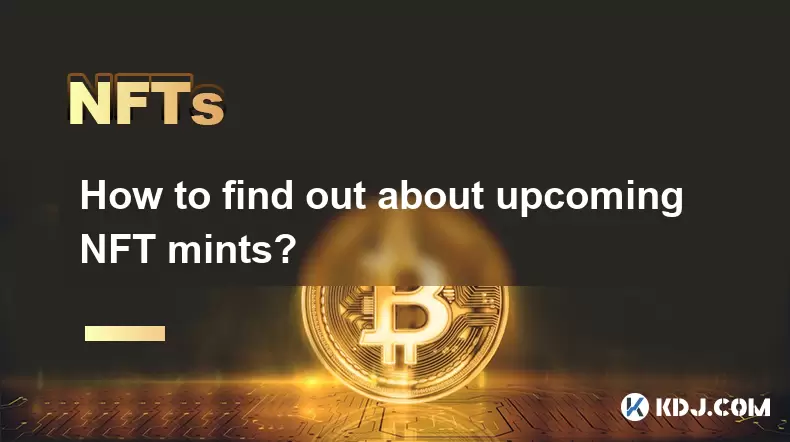
How to find out about upcoming NFT mints?
Jul 18,2025 at 11:50am
Exploring NFT Minting OpportunitiesUnderstanding the landscape of upcoming NFT mints is crucial for collectors, investors, and creators who wish to st...
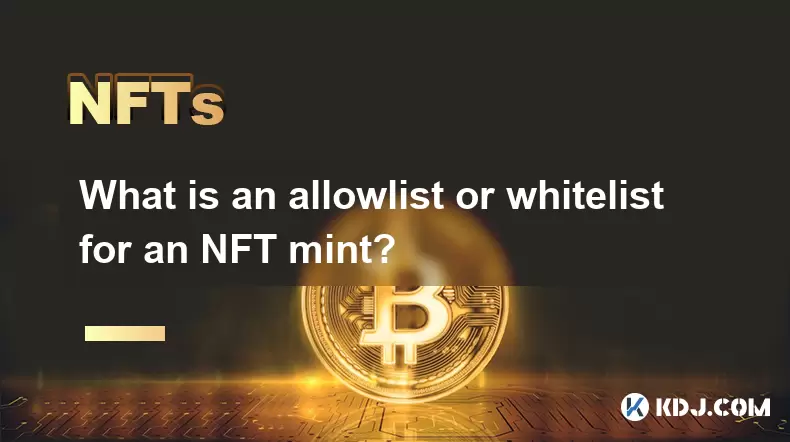
What is an allowlist or whitelist for an NFT mint?
Jul 20,2025 at 07:14pm
Understanding the Concept of an Allowlist for NFT MintingAn allowlist, also commonly referred to as a whitelist, is a mechanism used in the NFT mintin...

Is it possible to get a refund on an NFT?
Jul 21,2025 at 08:35pm
Understanding NFT Transactions and RefundsWhen you purchase an NFT (Non-Fungible Token), the transaction is typically recorded on a blockchain, making...

What happens to NFTs when the owner dies?
Jul 22,2025 at 02:43pm
Legal Ownership and Digital AssetsWhen an individual owns NFTs, the question of what happens to these assets upon their death is a pressing one. NFTs ...

What are the tax implications of gifting an NFT?
Jul 19,2025 at 04:21am
Understanding the Basics of NFT GiftingGifting a Non-Fungible Token (NFT) involves transferring ownership from one individual to another without recei...

Can you trade NFTs on your phone?
Jul 18,2025 at 04:29am
Trading NFTs on Mobile DevicesYes, you can trade NFTs on your phone, and the process has become increasingly streamlined thanks to a variety of mobile...

How to find out about upcoming NFT mints?
Jul 18,2025 at 11:50am
Exploring NFT Minting OpportunitiesUnderstanding the landscape of upcoming NFT mints is crucial for collectors, investors, and creators who wish to st...

What is an allowlist or whitelist for an NFT mint?
Jul 20,2025 at 07:14pm
Understanding the Concept of an Allowlist for NFT MintingAn allowlist, also commonly referred to as a whitelist, is a mechanism used in the NFT mintin...
See all articles

























































































